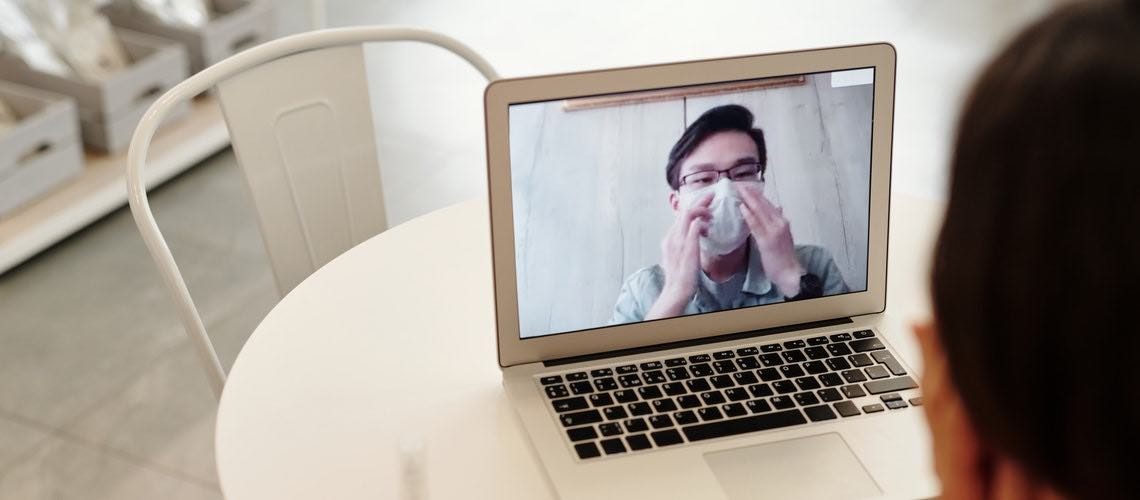Telehealth will receive another boost, as one of the key tools to slow the spread of COVID-19. The Department of Health and Human Services (HHS) has issued its fourth amendment to the 2020 declaration of the Public Readiness and Emergency Preparedness Act (PREP Act) to strengthen countermeasures used by providers to fight COVID-19.
Announced on Thursday, December 3, 2020, the amendment will expand access to important services via telehealth, increase availability of authorized PPE, and make it easier to administer COVID-19 vaccines.
Review of the PREP Act
The Public Readiness and Emergency Preparedness Act (PREP Act) was passed in 2005 to prepare for possible public health emergencies.
The law authorizes the Secretary of HHS to issue a declaration to provide immunity from liability (except for willful misconduct) for claims of loss caused, arising out of, relating to, or resulting from administration or use of countermeasures to diseases, threats and conditions. The immunity from liability may extend to entities and individuals involved in the development, manufacture, testing, distribution, administration, and use of such countermeasures.
COVID-19 PREP Act Declarations
During the COVID-19 pandemic the PREP Act has been used five times to strengthen countermeasures to the pandemic.
The first Declaration was made on March 17, 2020, and amendments occurred in April, June, August and December, 2020.
Changes Announced December 3 include Telehealth
This most recent amendment opens additional pathways for telehealth use, expands the use of personal protective equipment (PPE) and supports distribution of the COVID-19 vaccine by healthcare providers.
This new PREP Act declaration amendment:
- Authorizes healthcare personnel using telehealth to order or administer covered countermeasures, such as a diagnostic test that has received an Emergency Use Authorization (EUA) from the Food and Drug Administration (FDA), for patients in a state other than the state where the healthcare personnel are already permitted to practice.
- Provides an additional pathway to satisfy the declaration’s Limitations on Distribution section, giving covered persons immunity if they use on-label covered countermeasures licensed, approved, cleared or authorized by the Food and Drug Administration (FDA), or permitted to be used under an Investigational New Drug Application or an Investigational Device Exemption, to combat the COVID-19 public health emergency.
- Provides a new pathway for immunity for covered persons who use respiratory protective devices approved by NIOSH that the secretary of HHS determines to be a priority for use to combat the COVID-19 public health emergency.
- Clarifies the scope of PREP Act immunity in various ways. For instance, the amendment makes explicit that there can be situations where not administering a covered countermeasure to a particular individual can fall within the PREP Act and the declaration’s liability protections. This could apply to a COVID-19 vaccine being administered to one person instead of another based on each person’s relative vulnerability to COVID-19.
HIPAA is Not Suspended
We wrote about the boost given Telehealth in March, when two regulatory agencies relaxed their rules due to the pandemic. The Centers for Medicare & Medicaid Services (CMS) relaxed rules around reimbursement for Telehealth services, and the Office for Civil Rights (OCR) relaxed HIPAA rules. Regarding HIPAA, OCR is suspending sanctions and penalties for violations related to Telehealth services provided in good faith during the temporary COVID-19 emergency period.
OCR emphasizes however, that HIPAA is not suspended. The relaxation of sanctions and penalties only relate to Telehealth services, not to other services, or other requirements of HIPAA.
It’s critically important to remain vigilant on HIPAA. Although enforcement slowed in the early months of the pandemic, OCR has picked up the pace in the last several months. Continuing violations of HIPAA rules, and large breaches that reach the HHS breach portal draw attention, and investigations will follow. The growing threat of cybercrime is another reason to follow HIPAA because HIPAA compliance is a blueprint to protect against cyber security threats.
If you need help with HIPAA, want to improve your compliance, or simply have a question, we would love to help.

